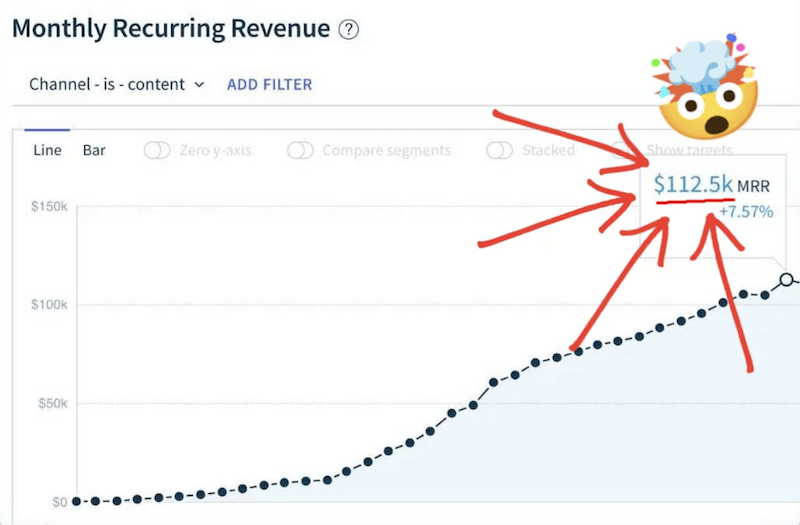What is non-consensual porn?
Non-consensual pornography is the act of creating or sharing explicit images or videos of someone without their approval. It is also known by its abbreviation (NCP) and the common term “revenge porn”. In many countries, including the US, it’s illegal.
Non-consensual porn fast facts
Non-consensual porn can be produced and obtained in many ways. Revenge porn is only one of them.
Many countries consider non-consensual porn as sexual abuse and a crime.
Deepfake technology makes it impossible to prevent NCP porn completely.
It’s smart to get consent from a partner before sharing explicit images and videos.
AI apps provide an alternative to the thrill of sexting and don’t require any consent from the AI characters.

Private sex tapes that are stolen, or published without the consent of the participants are considered as a form of NCP. Photograph: Mproduction via Depositphotos
What are common non-consensual pornography activities?
Non-consensual pornography (NCP) can happen in many ways. Here is a list of the most common NCP activities:
- Revenge porn: this typically happens as a form of revenge, after a break up, usually with the purpose of harming someone’s reputation.
- Deepfake porn: AI tools can create fake explicit videos or images from source files.
- Upskirting: taking unauthorized pictures or videos up a person’s skirt.
- Creepshots: taking voyeuristic photos or videos of individuals, often in public spaces.
- Hidden cams: secretly recording sexual intercourse in hotel rooms, Airbnb’s, changing rooms, and so on.
- Hacking and theft: login credentials and physical devices that get stolen can expose someone’s private image library.
- Extortion: perpetrators can blackmail someone and demand explicit videos in return for secrecy.

Taking upskirt pictures without consent is illegal in many countries. Photograph:Andrey Popov via Depositphotos
Is non-consensual pornography illegal?
Non-consensual pornography can take many shapes. From a legal point of view, it usually refers to what is also known as revenge porn.
In many countries, sharing explicit images and videos is considered a sexual crime. It can lead to prosecutions in court and convicts can be condemned to pay financial compensation or jail time.
In the US, for instance, 48 states and Washington DC have laws against sharing and producing non-consensual pornography. Massachusetts and South Carolina are the only two states that don’t have such laws in 2023.

The states represented in orange have laws against non-consensual porn. Photograph: Ballotpedia
What kinds of non-consensual activities would be considered illegal pornographic activities?
The legality of non-consensual pornographic activities varies from one jurisdiction to another. Local laws can address four types of non-consensual activities: consumption, possession, production and distribution of explicit images and videos.
Watching and downloading child pornography is an example of illegal non-consensual porn consumption and possession. In practice, it’s more complicated because the legality depends on, for instance, the jurisdiction and age of the perpetrator.
Producing deepfake porn and deepnudes without consent can also be an illegal activity. Distributing non-consensual explicit content activities include posting leaked sex tapes on porn sites, sharing nude selfies of a partner with others, stealing personal data, and more.
What are the legal consequences of sharing non-consensual pornography?
Each region has different laws concerning sharing non-consensual pornography. The legal consequences for perpetrators are therefore different. Also, in the US, the court can decide to treat it as a criminal or civil case, which influences how severe the punishments are.
The first criminal conviction of non-consensual pornography is usually considered a gross misdemeanor. Upon repeated conviction, the punishments can be prison and financial fines. Additional felonies, such as child pornography, can lead to more severe punishments.
In civil cases, victims can claim financial compensation from their perpetrators. Non-consensual porn can cause emotional, psychological, and economic damage. The court can condemn perpetrators to pay for those losses.
How can victims of non-consensual pornography seek justice?
Victims of non-consensual pornography often think of taking the law into their own hands. That’s a normal reaction towards abuse, but revenge can make the situation even worse.
Taking legal action is the proper way to seek justice for non-consensual pornography. That means, however, that victims are even more exposed in public. That can lead to additional anxiety, humiliation, and self-doubt.
Victims can also seek help from organizations that are specialized in the matter. The Revenge Porn Helpline (RPH) in the UK, and the Cyber Civil Rights Initiative in the US are two legit organizations that have already assisted many victims of revenge porn.
What are the long-term psychological effects experienced by victims of non-consensual pornography?
The long-term psychological effects on victims can be devastating. Victims of non-consensual porn testified in many studies to suffer from one or more of the following:
- Post-Traumatic Stress Disorder: nightmares, flashbacks, emotional numbing
- Anxiety and depression: persistent worry, sadness, and a sense of hopelessness.
- Low self-esteem and self-blame: feelings of guilt and worthlessness with problematic concerns about one’s own body.
- Shame and humiliation: feeling exposed and judged by others.
- Trust issues: fear that their privacy will be violated again in another relationship.
- Social isolation: no longer taking part in social activities and turning to oneself.
- Sexual dysfunction: emotional trauma can lead to problematic sexual relationships.
- Self-harm and suicidal thoughts: some victims are overwhelmed by the feelings of hopelessness and despair and react in desperate ways.
What steps can individuals take to protect themselves from becoming victims of non-consensual pornography?
Fully protecting oneself from becoming a victim of non-consensual pornography is impossible. But here is a list of measures that can reduce the risk:
- Think twice before creating or sharing explicit images or videos.
- Set and discuss boundaries and consent before sharing intimate images of yourself.
- Secure your accounts and devices. Use strong passwords, install software security patches, run antivirus software, and so forth.
- Don’t blindly trust strangers on the internet. Not everyone has good intentions or is who they claim to be.
- Check the privacy settings of the messaging, dating, and social media apps you use. You can often control who can see your content and personal information.
- Beware of phishing scams and never open links from sources you don’t know.
- Don’t keep explicit content longer than needed. If a relationship ended, for instance, it’s best to remove all the intimate content you’ve got.
What measures are being taken to prevent the spread of non-consensual pornography online?
Organizations, governments, tech companies, and even adult content publishers are taking all sorts of initiatives to remove non-consensual explicit content and prevent it from being shared.
- Legislation and legal actions against, for instance, revenge porn.
- Awareness campaigns to inform the public about legal and emotional consequences.
- The use of AI algorithms to scan content at a high scale and detect deepfake porn.
- Facilitating reporting and flagging suspicious content on platforms.
- Removal of non consensual content from explicit websites.
- Verifying users before they can upload sex videos to porn sites.
- Delisting websites from search engine results upon request of victims of non-consensual porn.
- Adopted terms and conditions of tools and platforms that can be used to generate or distribute explicit content.
How can one effectively communicate and get consent for explicit images?
It is wise to cover your back before you dive into the exciting adventure of sexting and sharing explicit images with someone. Here are some things you can do to prevent trouble down the road:
- Talk to your partner about boundaries and expectations about the intimate content you want to share with each other.
- Respect the decisions and privacy of your partner, even after the relationship ends.
- Ask for consent in a digital way. That doesn’t necessarily mean you need to have a signed contract, but an affirmative Yes on a text can do.
- Some people include this explicitly in a prenuptial agreement. That can sound like a bridge too far, but it is a safe way to protect both parties.
- Understand that consent is never given for eternity. People can change their mind and in that case, it’s best to delete old explicit content.
Do you need consent from AI characters?
No, you don’t, as long as the AI characters are purely fictional. AI characters have no legal rights and cannot decide on anything.
There are, however, some things to consider. For instance, the terms and conditions of AI generators can state that users are not free to distribute or sell the content they create — in which case, they don’t have the images owners’ consent.
Some of these tools allow users to interact with the AI characters. Chatting, sexting, voice messages and even video calls with AI characters all happen with the consent of the makers of the tool.

AI apps can give a sexting experience that can feel real and doesn’t require any consent from the AI characters. Photograph: DreamGF AI

